SunGold G3 licences can form part of rateable land for now?
Topics covered in this article: Farming & Horticulture, RMA
Special Counsel
Phone: +64 7 927 0522
Email: rzame@clmlaw.co.nz
Bachelor of Laws, Bachelor of Science, University of Otago
Senior Associate
Phone: +64 7 927 0595
Email: KStubbing@clmlaw.co.nz
LLB / BCom, University of Otago
A recent ‘test case’ in the High Court has held that the capital value of a property (a proxy for fair market value) includes the value of the land enhanced by SunGold licences, which in practice run with the land.
The decision will ring alarm bells for SunGold growers and other orchardists growing crops under exclusive licences. For growers in Gisborne, and elsewhere if other councils follow suit, this will mean a significant increase in their rates.
Background:
In 2021, as part of their three-yearly district ratings revaluation, Gisborne District Council (GDC) introduced the value of kiwifruit licences (SunGold/G3) within the ‘land improvements’ part of a property’s capital valuation (CV).
The increase in CV, and accordingly the rates increase, was significant for growers of this variety. In their submission on the GDC long term plan, the New Zealand Kiwifruit Growers Institute (NZKGI) provided some examples of increases experienced by growers in the region:
NZKGI brought judicial review proceedings against GDC in the High Court challenging the inclusion of G3 licences for the purposes of setting the rateable value of the land, and accordingly the rates.
One Gisborne grower, the Bushmere Trust, also lodged an objection to its valuation to the Land Valuation Tribunal (Valuation Tribunal). The NZKGI High Court judicial review proceedings were placed on hold, pending a determination by the Tribunal on the Bushmere Trust objection to its valuation.
The Bushmere Trust property is a relatively modest size, with approximately 3.11 hectares of orchard canopy, and includes planted G3 and rootstock for future planting of Zespri red. But it has come to represent a ‘test case’ for not only the other 49 growers with G3 licences in the Gisborne district, but will likely also be watched with a keen eye by other G3 growers throughout New Zealand, including in the Bay of Plenty and Northland.
The ultimate question before the Valuation Tribunal was whether the value of the G3 licence (as opposed to rootstock or other improvements) is an improvement to the land under the Rating Valuations Act definition of ‘improvements’, and can be rated accordingly. The Valuation Tribunal ¹ concluded that the G3 licences were not ‘an improvement to or for the benefit of the land’ (and therefore shouldn’t be included within the rateable value); with the Valuation Tribunal concluding:
1. The licences represent a ‘speculative investment’ by the owner with a prospect of increasing income from the orchard business;
2. The licence cannot be transferred with the property and requires a new contract with Zespri; and
3. The licence can, and has in certain cases, been transferred and the cultivars removed from the rootstock. Rootstock is still available to be utilised by other non-licenced species or licenced species of kiwifruit.
High Court Decision:
GDC, supported by the Valuer-General appealed to the High Court. The Council argued that the Tribunal had erred by:
(a) Valuing the land based on a position that couldn’t lawfully exist i.e. land with SunGold vines but no permission that authorises the existence of the vines.
(b) Not including the enhanced value that runs with the permission (and is recognised by the market as transferring with the land) in the capital value.
(c) Incorrectly distinguishing or rejecting relevant cases.
(d) Interpreting the Rules in a way that was inconsistent with the Rating Valuation Act; and
(e) Creating inequity in the rating of SunGold compared to other horticultural properties, because it would require the value of all plant variety licences to be deducted from the value of properties, without deducting the value of the vines.
The Valuer-General raised similar arguments, and also submitted:
(a) Ultimately, capital value is very much a market valuation exercise. The key question for a sale to a hypothetical purchaser would be whether the licence would be factored into the purchase price. Given the legal framework, the practical effect is SunGold licences transfer with the land.
The High Court considered the provisions of the Rating Valuations Act were relatively clear that ‘vines’ are not taken into account in assessing land value, but can be included in the capital value. The Court noted that capital value is a proxy for ‘fair market value’. While a SunGold licence doesn’t necessarily run with the land in a legal sense, in practice it is associated with property to such an extent that its value is priced into the market value.
We understand that NZKGI intends to seek leave to appeal the decision to the Court of Appeal . As noted above, the High Court decision will lead to a significant rates increase for Gisborne kiwifruit growers, and will likely be of concern to growers in other areas where councils may follow GDC’s lead and include the value associated with licences in their rating valuations.
If you would like further information on the SunGold rating ‘test case’ or how it might affect your orchard; please feel free to contact a member of our team.
[1] Bushmere Trust v Gisborne District Council [2022] NZLVT 002
Updated: 21 September 2022







